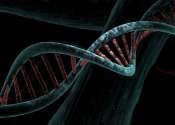Unraveling the mathematics behind wiggly worm knots
For millennia, humans have used knots for all kinds of reasons—to tie rope, braid hair, or weave fabrics. But there are organisms that are better at tying knots and far superior—and faster—at untangling them.









